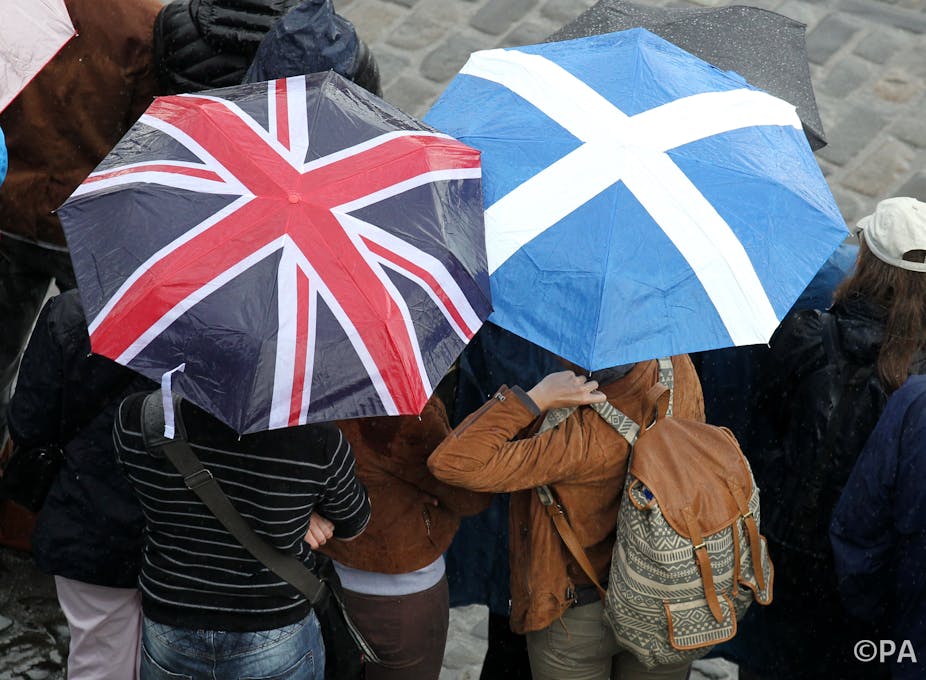In the closing lines of my book, The Scots and the Union: Then and Now, I wrote:
The union has been a fact of life for Scots for more than three centuries. Union is a habit, which, currently, large numbers of Scots might like to cut down on, but not give up altogether.
I ended by saying that if this were to change, the electors would need to hear a convincing case for the advantages of leaving the Union behind.
That 55% of the Scottish electorate voted No to independence suggests that I was right – but that a full 45% of voters said Yes to independence demonstrates the depth of Scottish unhappiness with the Union and Westminster. It also reflects the sense many Scots have that they are a nation, but a stateless one.
What came over forcefully during the campaign was the strong belief that the people in Scotland can better govern themselves. The devolved Scottish parliament established in 1999 has gone some way to addressing this legitimate aspiration – but the process must go further.
Hammering it out
The No victory was delivered in spite of, rather than by, the pro-Union side’s markedly negative campaign. This was a sound, pragmatic strategy, exposing the many risks and uncertainties of the Yes camp’s hastily worked-out independence proposals. Yes Scotland’s rhetoric was compelling, but the substance was lacking.
That means we still have to figure out not just Scotland’s future in the Union, but also England’s place within the Union state (to say nothing of Wales and Northern Ireland’s).
Clearly – as was made obvious by the interventions of English MPs and the likes of Nigel Farage - giving further powers to Scotland will guarantee to new imbalances and political tensions elsewhere in the United Kingdom. These will demand resolution; federalism is surely now on the cards.
Fundamental values
All parts of the United Kingdom not only need constitutional change of the kind that has been mooted in recent months (and, under duress, in the last few days); they must also do some serious thinking about what the Union represents and what its purpose in the 21st century really is.
To his credit, though admittedly late in the day, Gordon Brown’s intervention took us some way in this direction. But what’s needed now is a set of commonly agreed principles that can galvanize and unite the peoples of Britain.
The Union of 1707 was from its inception underpinned by important ideals – including constitutional monarchy - that drew at least some of the politicians of the two countries together. Without forward thinking about Scotland’s place within the British state, what the Union represents, and what belonging to the United Kingdom offers in real terms for all its constituent parts, there is every chance that there will be yet another referendum in Scotland – but next time with a different outcome.

